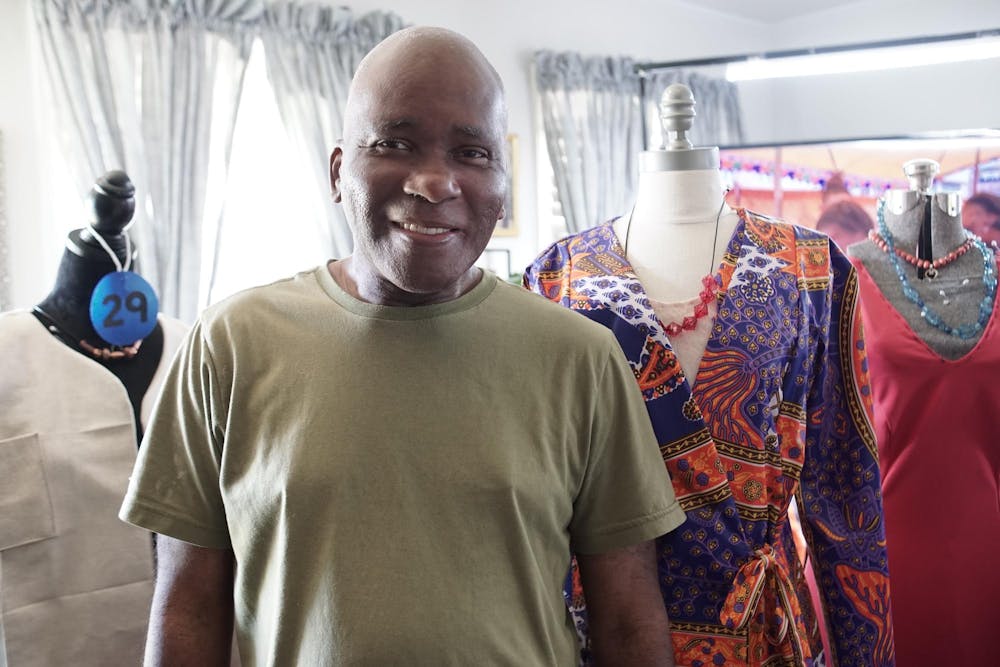David Lyles begins most spring mornings on his front porch, quilting and talking to passerby neighbors.
Lyles is a quilter, fashion designer and resident of Chapel Hill’s Northside neighborhood. Originally from Sanford, Lyles came to Chapel Hill 17 years ago to receive medical treatment at UNC Hospitals. Through an affordable housing voucher program, he moved from a men’s shelter on MLK Jr. Boulevard to his current green-shingled home and workshop on West Rosemary Street.
From his front porch, he engages students, neighbors and community members in conversation, sometimes inviting them inside to look at his home quilting studio. He recalled one photography student he had a particularly healing talk with — the next day, her and her mother gifted him a basket of household supplies.
“That’s one thing about this neighborhood — it builds you up and it will take care of you,” Lyles said. “But you gotta let go of some old mess so you can go forward.”
Lyles serves as a mentor for the Marian Cheek Jackson Center’s Linking Generations in the Northside Program, which fosters relationships between elder residents and neighboring UNC students. The Jackson Center’s latest initiative builds atop the Northside community’s legacy of intergenerational care, Ryan Lavalley, an occupational therapist who heads UNC’s Community Practice Lab, said.
The Jackson Center, founded in 2007, is a community organization dedicated to preserving the stories and securing the futures of Chapel Hill’s historically Black neighborhoods, including Northside, Tin Top and Pine Knolls. Besides Linking Generations in the Northside Program, the Jackson Center’s programming includes an oral history collection from Northside elders, a food distribution center and a land bank which purchases Northside properties to safeguard future generations from gentrification-related displacement. Between 1980 and 2010, the area’s Black population dropped by 40 percent as developers converted historic homes to student rentals, leading to skyrocketing rents that priced out longtime residents and family households.
On Jan. 16, the Carol Woods Retirement Community gave the Jackson Center and Community Practice Lab a $40,000 grant to fund the development of community-led elder care options for Northside residents. Current proposals include creating a respite care center at 308 Lindsay Street and a more intensive community aging hub at 605 Church Street. Respite care is a form of temporary relief for primary caregivers, where other people can take care of their patients for hours at a time.
The Church Street property was formerly home to the New Vision Church of God of Prophecy, while the 308 Lindsay Project honors the legacy of Velma Perry, a community activist who lived in the house for over 90 years.
“We see families who have been here for a really long time — grandparents living with their children and grandchildren,” Lavalley said. "So there’s just this abundance of mutual care that’s already happening. The Northside calls that the triumph of mutual care, and that’s where we want to start.”




